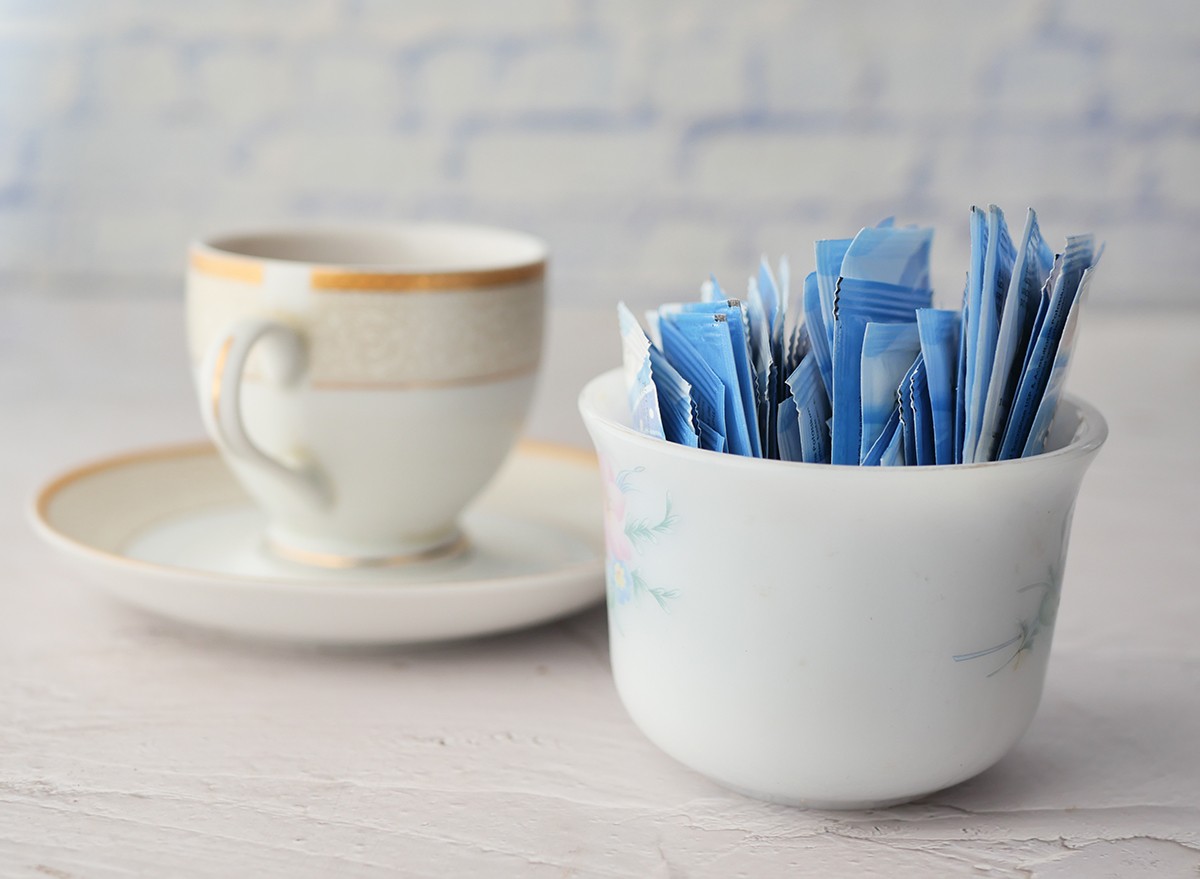The Secret to a Flatter Stomach Could Be as Simple as These 5 Changes

Is constant bloating causing you physical discomfort and impacting your confidence? A study from Cedars-Sinai hospital shows nearly 1 in 7 Americans experience bloating on a weekly basis, with women twice as likely to report bloating. “Other studies have also found that women report more bloating than men, and researchers have proposed various hypotheses for why this may be occurring,” Janice Oh, MD, tells Cedars-Sinai newsroom. “These include hormonal, metabolic, psychosocial, lifestyle and dietary differences between men and women.” Several factors can impact this issue—here are 5 ways to ease bloating and get a flatter stomach, according to experts.
RELATED: Nutritionists Say This Drink Can Help with Bloating.
Don’t Eat So Fast

It may be tempting to eat as fast as possible in today’s fast-paced world, but eating too fast not only causes bloating, it doesn’t give your body a pick up on fullness cues. “When you eat too fast, you are more likely to swallow air,” says OSF Healthcare. “Your stomach fills up with extra air, which causes your stomach to fill with gas. Chewing gum and smoking can also cause you to take in extra air.”
Avoid Sugar Alcohols

Eliminating sugar alcohols can help with debloating. “Sugar alcohols like xylitol, sorbitol and mannitol are often used as sugar substitutes in ‘sugar-free’ or ‘low-sugar’ foods,” Danielle Crumble Smith, RDN, tells Good Housekeeping. “These can cause bloating, especially when consumed in large amounts, because they’re not fully absorbed by the body and are fermented by bacteria in the gut.”
Overhaul Your Diet

Eating fiber can help with debloating over the long run. “It is important not to completely omit foods from the diet that may cause gas,” says Natalie Egan, MS, RD, LDN, via Brigham and Women’s Hospital. “As we know, a high-fiber diet is important for bowel regularity and colon health, so it is well worth the patience it may take to slowly build up tolerance to these types of carbohydrates. Start by adding the offending high-fiber food in smaller quantities, such as a half cup or less. Be sure that fluid intake and activity levels are adequate, as they help to move foods through the digestive tract.”
Set a Bathroom Schedule

Constipation can lead to bloating, experts warn. “Most women don’t want to talk about it, but you really have to set aside a specific time each day to use the bathroom,” Judith Reichman, MD, tells Good Housekeeping. “If you don’t, it’s too easy to give into feeling rushed, and ignore the urge to go.”
See a Doctor

If nothing seems to get rid of bloating, it might be wise to see a doctor. “Food allergies and intolerances can cause gas and bloating,” dietitian Lena Beal, MS, RD, LD, tells Piedmont Health. “But these need to be confirmed by your doctor. Many people self-diagnose these conditions and unnecessarily eliminate healthy dairy and whole grains from their diets. If you suspect you have an allergy or intolerance, see your doctor for tests.”